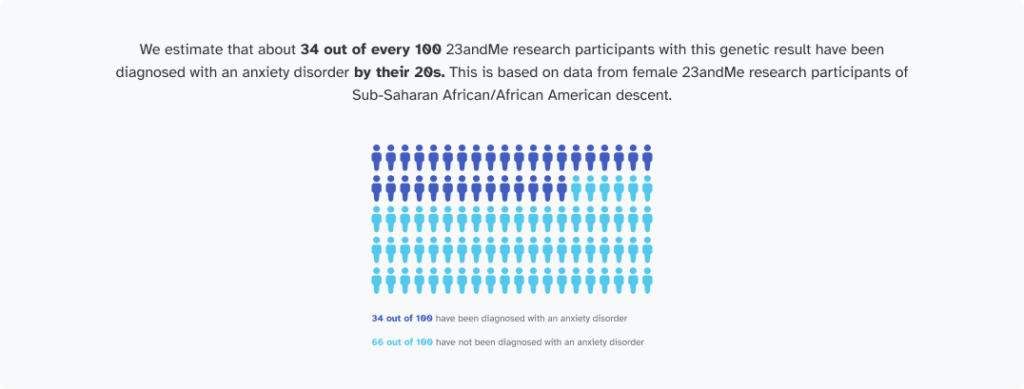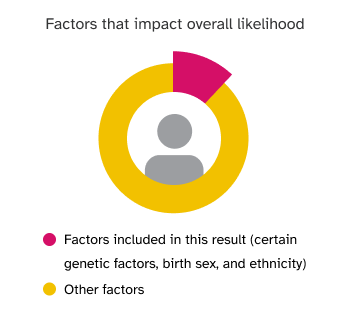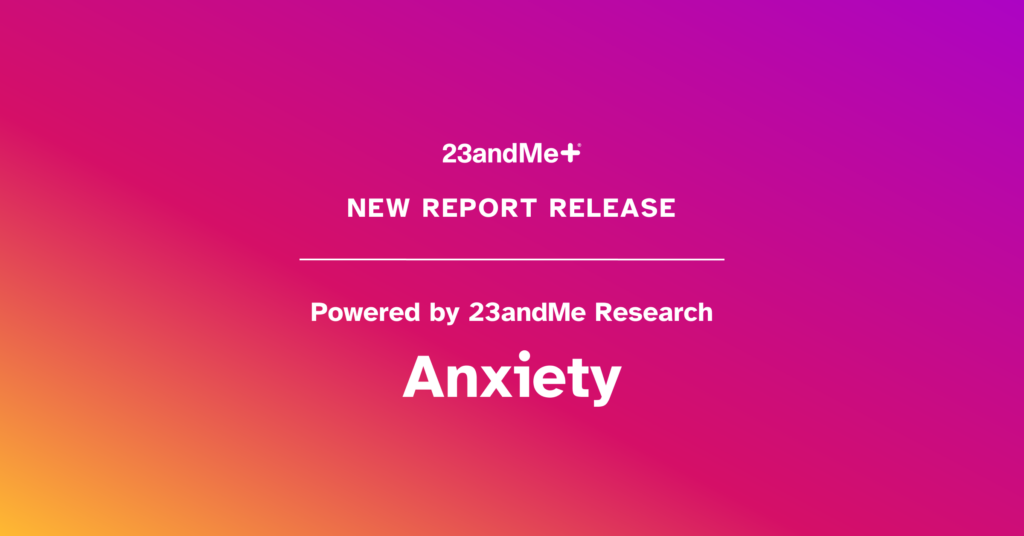This week, we released a new report Powered by 23andMe Research on Anxiety for 23andMe+ Members.
Anxiety is a normal part of life and a natural reaction to stressful situations. But when anxiety doesn’t go away and becomes overwhelming or disruptive to daily life, it may be considered an anxiety disorder.
There are many different types of anxiety disorders, including generalized anxiety disorder, panic disorder, social anxiety disorder, and phobias.
Anxiety disorders are very common. Up to three in 10 people in the U.S. will be diagnosed with an anxiety disorder in their lifetime, and females are almost twice as likely to experience anxiety as males.
Understanding Anxiety
Researchers believe that genetics combine with other factors to influence how likely an individual is to develop an anxiety disorder.
Non-genetic factors that can increase the likelihood of experiencing an anxiety disorder include: a history of stress, trauma, or abuse; a family history of anxiety; female birth sex; other health conditions, including other mental health conditions; experiencing discrimination; certain medications; and problems with alcohol or drug use.
One Part of the Story
Your genetic report result doesn’t mean that you will or will not experience an anxiety disorder.
This is because most of a person’s overall likelihood of developing an anxiety disorder is explained by factors not accounted for in this result, including both genetic and non-genetic factors other than those included in the result.
If you have already been diagnosed with anxiety by a healthcare professional, this genetic result does not change that. It is important to work with your healthcare provider and continue any recommended management plan.
Symptoms of Anxiety
Everyone experiences anxiety differently, but there are some shared signs and symptoms.
Physical signs include a pounding heart, hyperventilation, muscle tension, sweating, nausea, and difficulty sleeping.
Many people also experience a sense of uneasiness, dread, or fear.
A New Report
Our new report is powered by data from people who have consented to participate in 23andMe research and uses machine learning techniques to estimate an individual’s likelihood of developing anxiety.
This estimate is made using a statistical model that includes more than 7,700 genetic markers and information on an individual’s ethnicity and birth sex. You can learn more about the science and methodology behind our new report in this white paper.
Managing and Treating Anxiety
Medication and counseling, or a combination of the two, are all ways to treat anxiety.
In addition, many lifestyle habits may help manage symptoms. Regular exercise, stress-reduction or mindfulness techniques, and dietary changes like removing or reducing caffeine intake and limiting alcohol can reduce anxiety and help boost mood.
It’s also important to seek social support, especially during times of stress, such as significant life changes or losses.
Learn More
23andMe’s new Anxiety report (powered by 23andMe Research) is available to all annual members of the 23andMe+ Membership. To view your report, go here.
Not an annual member to the 23andMe+ Membership?
Find out more here.
